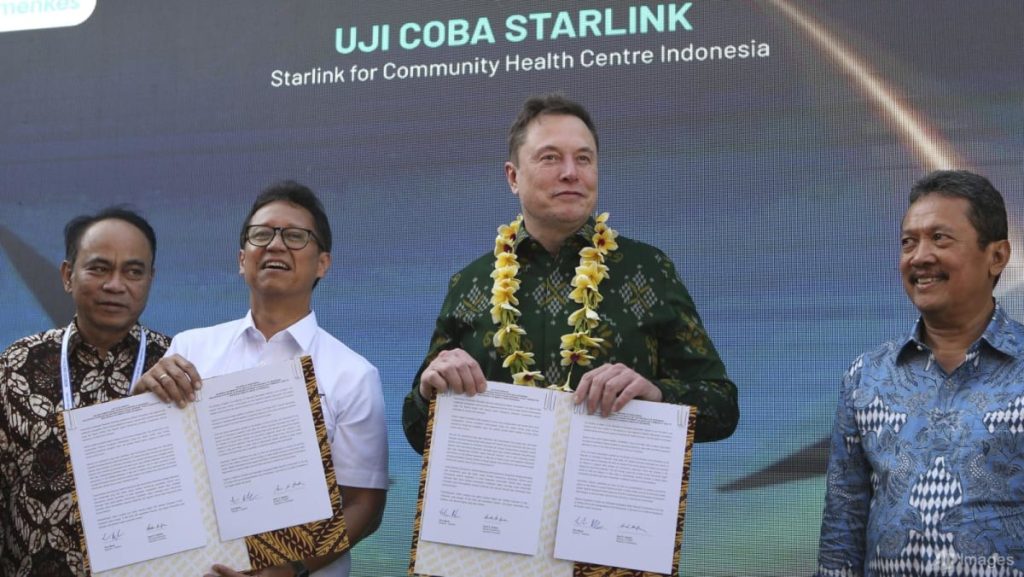A video presentation at the launch event highlighted how high internet speeds facilitated real-time data input to address health challenges such as stunting and malnutrition. Elon Musk, the founder of SpaceX, was questioned about potential investments in Indonesia’s electric vehicle industry, to which he responded that his focus was on Starlink. Musk emphasized the importance of internet connectivity and its lifesaving benefits, particularly for remote islands. The Indonesian government has been attempting to attract Musk’s Tesla to establish manufacturing plants for electric vehicles as part of its efforts to develop the EV sector using the country’s nickel resources.
Elon Musk is set to meet Indonesian President Joko Widodo, where he will also participate in the World Water Forum on the island. Communications Minister Budi Arie Setiadi, present at the Bali launch, stated that Starlink was now commercially available, with initial services to be targeted towards outer and underdeveloped regions. Before the launch, Starlink received authorization to operate as an internet service provider for retail consumers and was granted a permit to provide networks, including a very small aperture terminal (VSAT) permit, according to Budi Setiadi.
SpaceX’s Starlink, with approximately 60% ownership of the 7,500 satellites orbiting Earth, holds a dominant position in the satellite internet industry. Indonesia becomes the third country in Southeast Asia where Starlink will offer its services, following Malaysia’s license approval in the previous year and a deal with a Philippines-based firm in 2022. Starlink’s services are extensively utilized in Ukraine, where it supports the military, hospitals, businesses, and aid organizations.
The focus on Starlink in the launch event underlines the significance of internet connectivity in addressing various challenges, including health disparities and economic development. Elon Musk’s visit to Indonesia highlights the potential for collaboration in the EV sector and the deployment of cutting-edge technologies to empower underserved communities. Starlink’s expansion in Southeast Asia and its existing partnerships in Ukraine demonstrate the global reach and impact of satellite internet services on diverse sectors and populations worldwide.
The Indonesian government’s prioritization of outer and underdeveloped regions for Starlink’s services underscores its commitment to bridging the digital divide and expanding access to high-speed internet connectivity. Starlink’s ability to provide real-time data input for health initiatives and support various sectors demonstrates the versatility and potential of satellite internet technology. With a strong presence in the satellite internet sphere, Starlink continues to advance connectivity solutions globally, benefiting both developed and developing regions.













